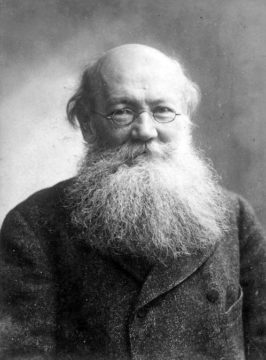 Greg Afinogenov in the LRB:
Greg Afinogenov in the LRB:
In summer 1876, Peter Kropotkin was given a pocket watch by a visiting relative. He was 33 years old, bore one of the Russian Empire’s oldest princely titles and had been a page de chambre to Tsar Alexander II. He was already famous in Russia for his scientific work on zoology and glaciation. Two years earlier, however, he had been arrested and imprisoned as a member of a revolutionary secret society. The watch was delivered to him in a prison hospital, to which he had been transferred after his health declined in the dungeons of the Peter and Paul Fortress. Concealed in the watch was a coded message detailing his role in an elaborate escape plan involving some two dozen comrades, many operating in disguise. The plan went off without a hitch; minutes after climbing into the waiting carriage, Kropotkin had changed his prison clothes for those of an aristocrat, blending in perfectly with the crowd on Nevsky Prospekt. While the imperial secret police fruitlessly combed the area, Kropotkin went out to dinner at a fashionable restaurant. After a few days lying low in nearby dachas, he was spirited away to Britain. He didn’t return to Russia until after the February Revolution of 1917.
In exile, Kropotkin drew on both his scientific and political interests to create the theoretical foundations of modern anarchism. His comrades in Russia, who were known as narodniki, or populists, shared many of his views but not all. Inspired by their liberation of Kropotkin and other daring feats, some of them embarked on a campaign of terrorism that culminated in the assassination of Alexander II in 1881.
More here.
